There’s some fantastic laws in Leviticus (no really!) that contain immense truth:
Keep my decrees. Do not mate different kinds of animals. Do not plant your field with two kinds of seed. Do not wear clothing woven of two kinds of material. (Lev 19:19)
And in Deuteronomy:
A woman must not wear men’s clothing, nor a man wear women’s clothing, for the LORD your God detests anyone who does this… Do not plant two kinds of seed in your vineyard; if you do, not only the crops you plant but also the fruit of the vineyard will be defiled…Do not wear clothes of wool and linen woven together. (Dt 22:5, 9, 11)
Why on earth are these important?
God is Three
Well remember that creation was made to glorify God. It does this by making known God’s divine nature (Rom 1:20) and since our God is three the different genders, species and materials reflect the plurality of the Godhead.
So anything that seeks to remove these differences actually seeks to destroy how creation glorifies God. That is why crossbreeding, cross-dressing and the intermixing of seeds and material were prohibited. Each of these actions ultimately causes the loss of the distinctive characteristics and qualities of the different species, genders or materials.
These differences are especially important in marriage as only male and female together make up the full image of God:
So God created man in his own image, in the image of God created he him; male and female created he them.
Male and female created he them; and blessed them, and called their name Adam, in the day when they were created. (Gen 1:27; 5:2 KJV)
And in the church, the Body of Christ:
Just as a body, though one, has many parts, but all its many parts form one body, so it is with Christ. (1 Cor 12:12)
The members of the church are different and have been given different gifts and all are needed to express the full image of Christ and all are needed to build up each other (see also Eph 4).
God is love
Intuitively we know that honouring the differences shows love and this reflects our God who is three and whose nature is love. For example I wouldn’t be loving all my children if I gave them all the same gift of a stunt bike for their birthdays. My eldest son would be delighted but my three other children would be upset and feel unloved.
We see this in how God deals with the different individuals in the Bible in different ways. He even heals the same condition (such as blindness) in different ways. So too the Spirit of love gives different gifts to the members of Christ’s Body, and God created male and female different to each other. These differences glorify the full nature of the Godhead.
God is one
However our God is also one (eg Jn 10:30). There is unity in the Godhead hence we use “Trinity” which comes from tri-unity. And so God is glorified when there in unity amongst the differences. Jesus prayed that the church would be one like he and the Father are one (Jn 17). Hence we speak of communion which comes from common-union. And one flesh (Gen 2:24) comes from the unity of male and female.
Unity is a beautiful and godly thing (Ps 133:1) but the counterfeit to unity is uniformity. This has been seen throughout history, such as in the Hellenisation of different cultures. It is more prevalent than ever in our common age under the guise of technological advances or equality. The world speaks of diversity but to think different is to be classified as sexist or a bigot. To say anything different is now classified as “hate speech”. Love has been confused with agreement.
This lie has permeated the church:
- There must be one “right” way of ministering healing – all methods must be wrong.
- There must be one “right” way of worshipping – other methods are clearly inferior/not spirit led or unscriptural.
- There is one “right” way of doing church – all other denominations are wrong/unbiblical.
And so we end up not with unity but competing ministries/churches where each contain cookie-cutter Christians who look the same, think the same and act the same.
It’s easy to understand why. Because uniformity requires no grace/love for those who are different. It requires no sacrifice/change in one’s own life. It’s convenient Christianity. It’s not taking up your cross and denying self (Mk 8:34).
How can we have unity of differences?
If we return back to those laws in Leviticus and Deuteronomy there was actually times when the forbidden mixture of wool and linen was allowed – in the prayer tassels and the clothes worn by priests. Only priests were allowed to mix the aromatic spices to make the anointing oil (Ex 30:33) and for the mixing of seeds in Dt 22:9 the Hebrew word (bizarrely translated as “defiled”) is qadash (H6942) which means consecrated/holy.
You see the holy unity of differences can only occur through our great High Priest Jesus (Heb 4:14).
Jesus is glorified if there is unity amongst believers (Jn 17:20-23) but it’s impossible to have unity between a zealot and a tax-collector without Christ’s spirit of love. And so this could only be realised after the Spirit came at Pentecost:
All the believers were one in heart and mind. No one claimed that any of their possessions was their own, but they shared everything they had.
(Acts 4:32 see also Acts 2:42-47).
It is this unity between differences that glorifies/speaks of God. That’s why Jesus said “everyone will know that you are my disciples if you love one another” (Jn 13:35). A sign of a church that reflects Christ’s love is one that crosses social, racial, political and denominational barriers – people who are different – that’s what the world will see as astonishing.
That’s why when Paul speaks of the differing gifts of the spirit in 1 Cor 12 and 14 he speaks of God’s Spirit of love in 1 Cor 13. And again when Paul talks of the different gifts and ministries in Eph 4 he speaks of unity in love through the Spirit.
Jesus is glorified when there is unity between the man and women in marriage. And this is only possible through the Spirit of love. Hence God breathed his breath, his spirit into them (Gen 2:7) and the man, woman and Spirit makes a cord of three strands that is not easily broken (Ecc 4:12).
Only in Christ is there unity in churches and marriages. But greater than all of these is the truth that only in Christ can there be unity between God and man. Things so different that could never be together on their own.
Making it reality
So when you become frustrated with someone who is so different to you, whether that be in church or in your marriage, and you find yourself crying out “I just can’t love ” then look to Jesus who cried “it is finished” and through his death broke down the dividing walls (Eph 2:14), ripped the curtain of the temple (Mt 27:51) and brought unity between God and sinful man, Jew and Gentile, slave and free and male and female (Gal 3:28).
Father, forgive me that I want to take the easy route of uniformity. I want everyone to be like me so I can have a convenient life. Father, I can’t love them on my own, I need your Spirit. Help me to honour their differences and to sacrificially love them like your Son sacrificed himself for us when we were your enemies so that we can be one. In Jesus’ name. Amen.
In case you’re wondering about the picture. It’s all the components of a camera. Only if all those individual parts are become one do we get the whole camera. Only together do they give the full picture (pun intended). So too may it be in our marriages and churches.
Further Reading
- I am indebted to this Jewish article that first opened my eyes to the significance of Leviticus and its application to sexuality.
- To read more about oneness in sexuality you can read my earlier post here.
- I also highly recommend “The Culture of Honour” by Danny Silk that gives some great tips of loving and honouring the differences in the church.
- And finally I thought this article from relevant magazine on sub-cultures of uniformity in the church rather than unity in love was worth reading.


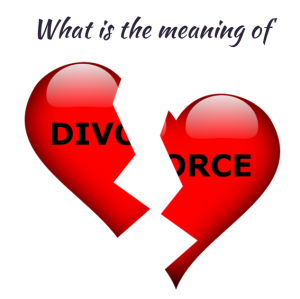





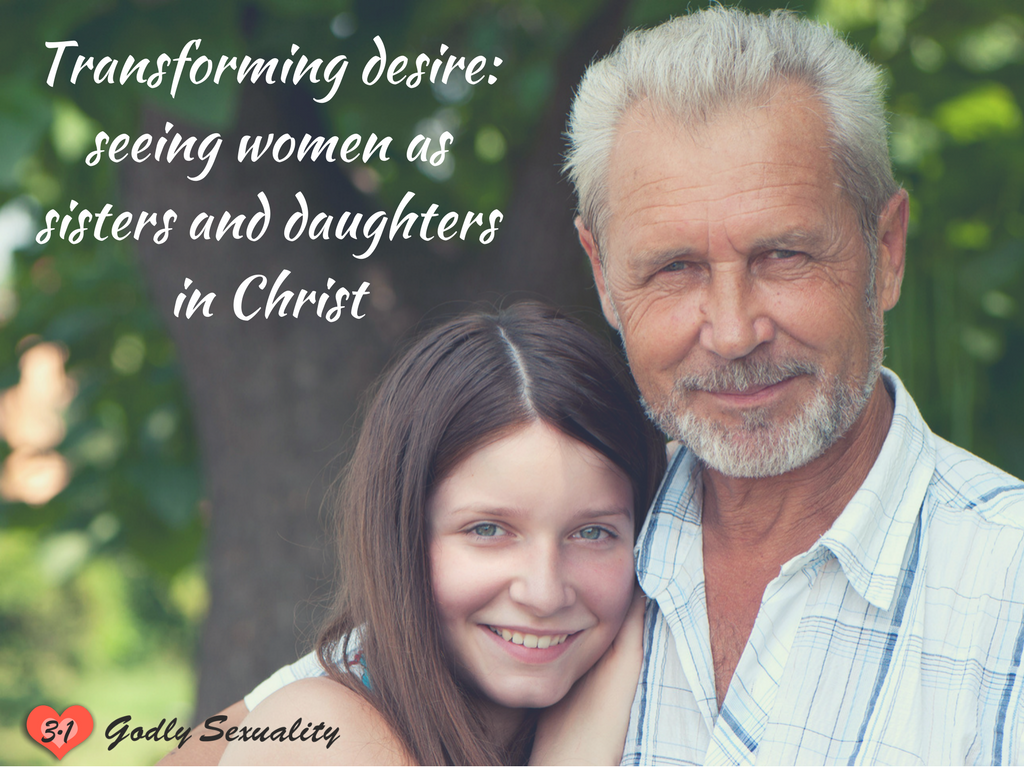



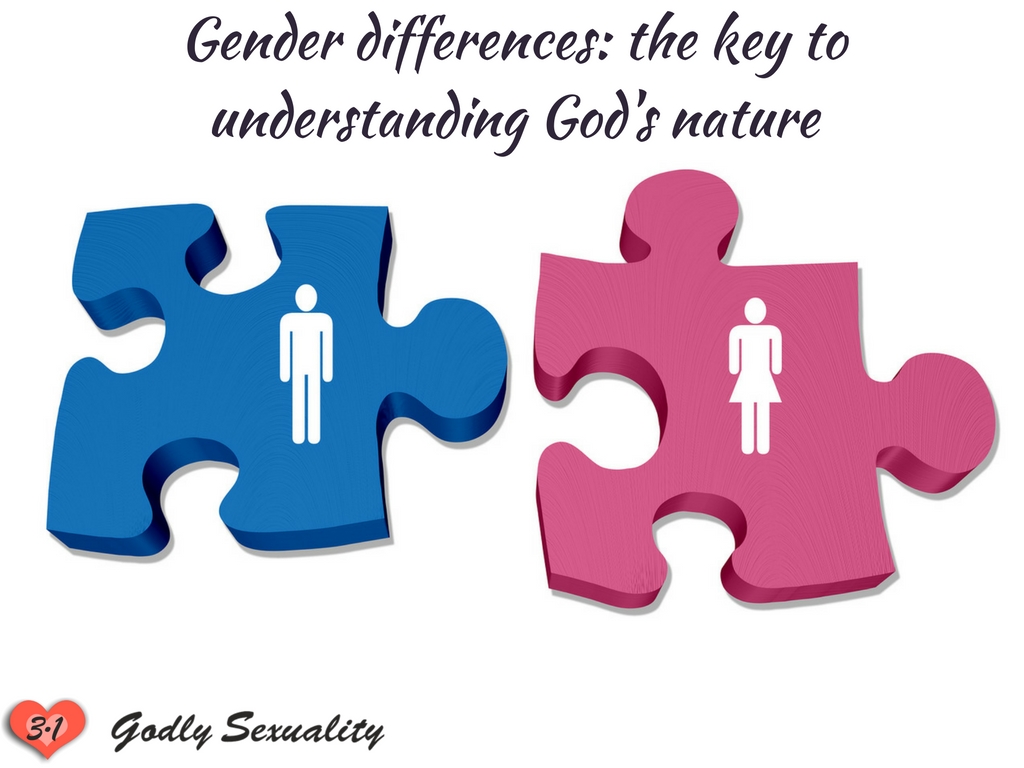
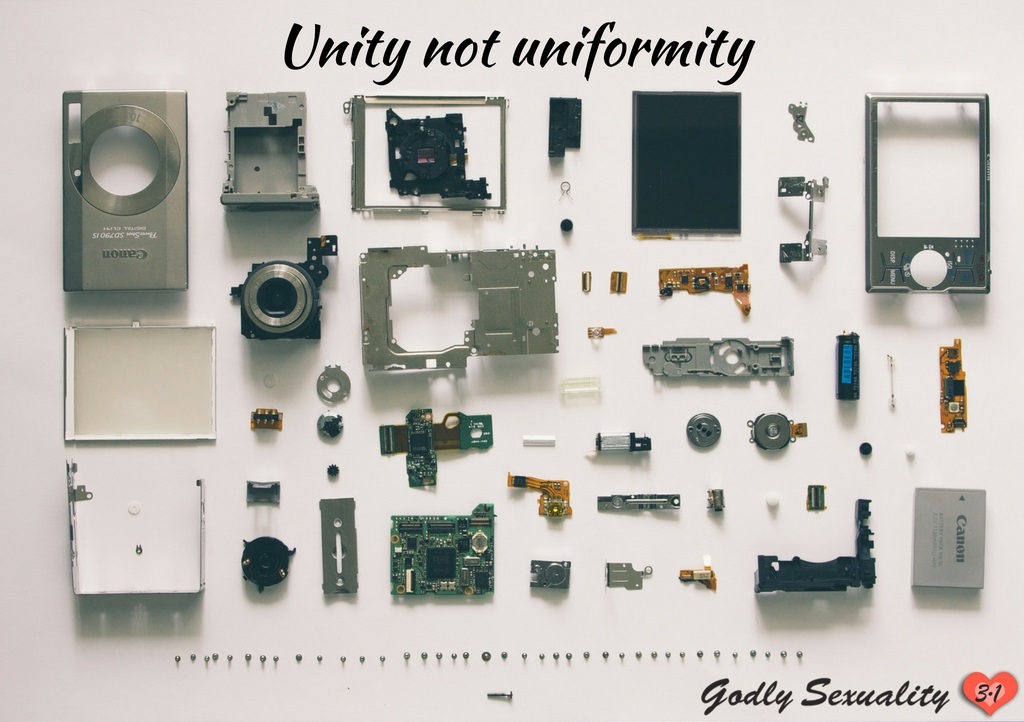
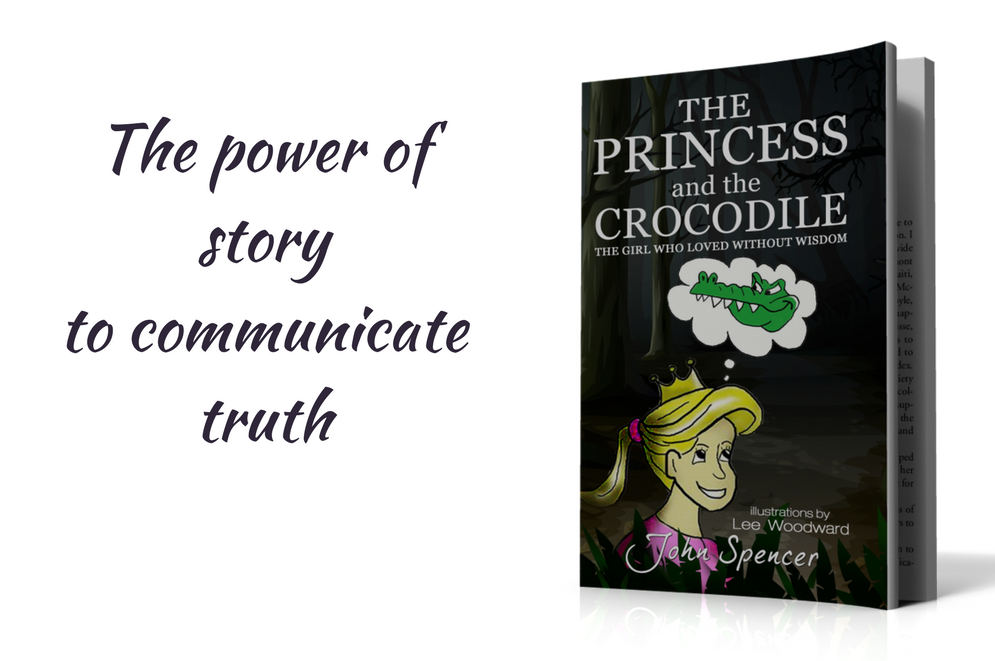
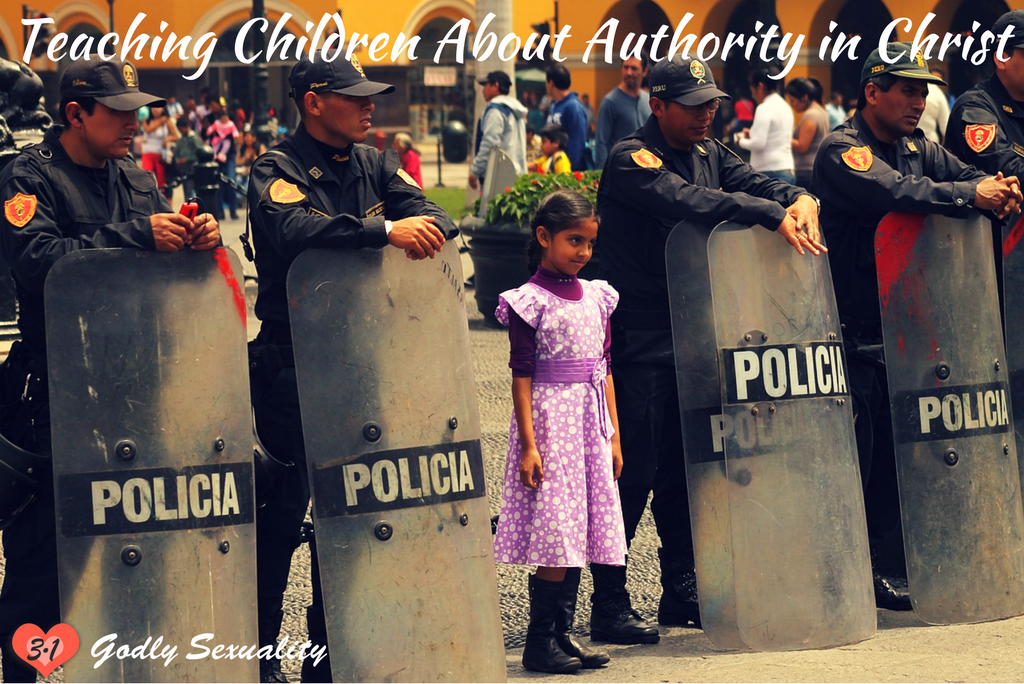

Trackbacks/Pingbacks